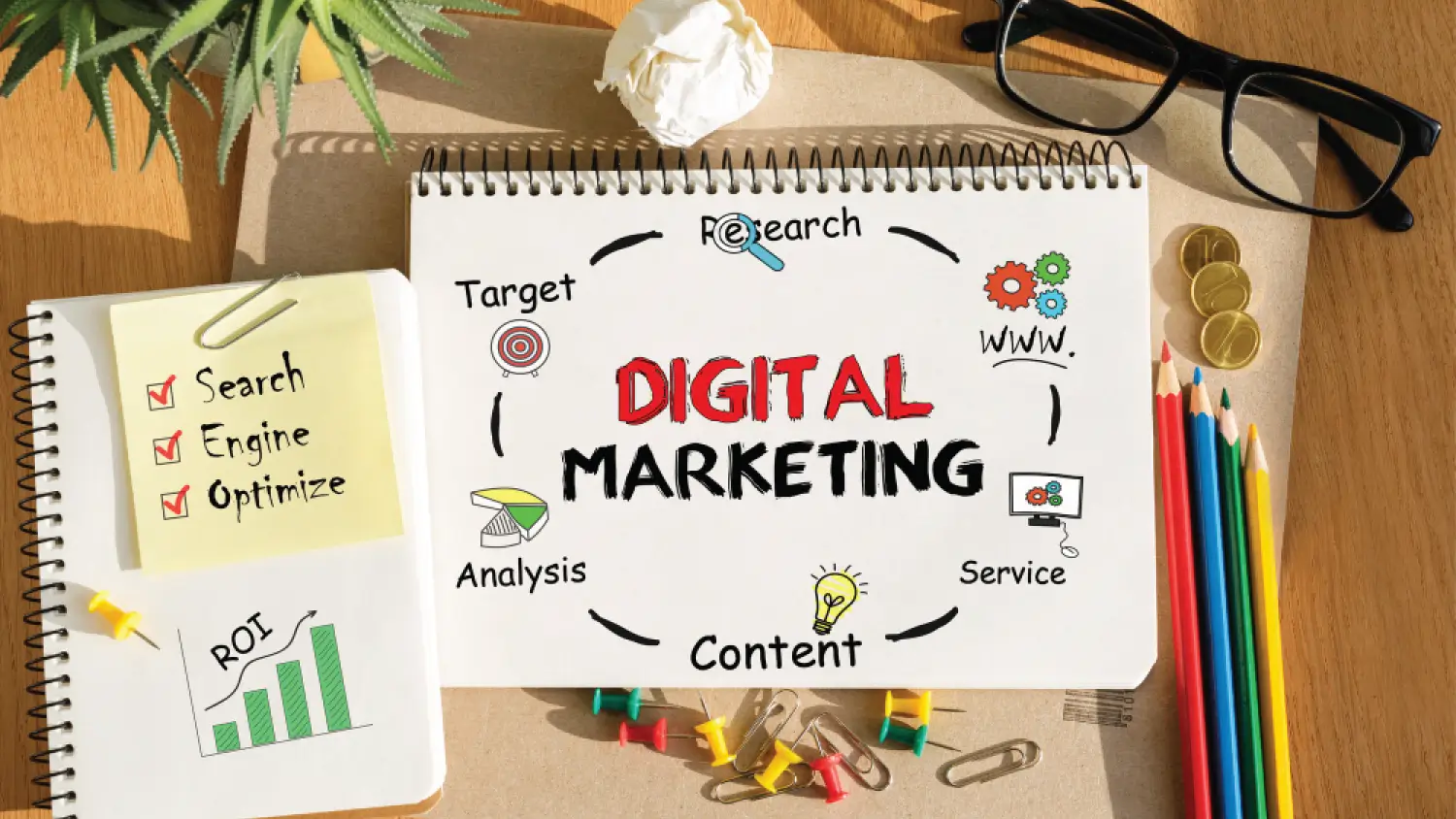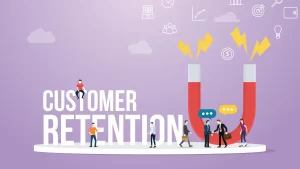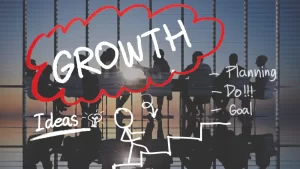In today’s hyper-competitive business landscape, traditional marketing methods alone are no longer enough to drive growth. Digital marketing has emerged as a powerful tool to reach target audiences, increase brand visibility, and ultimately accelerate business growth. By leveraging online platforms, businesses can strategically connect with potential customers, convert leads, and scale efficiently.
At Biz Grow Daily, we understand that every business, whether a startup or an established enterprise, can benefit from adopting a robust digital marketing strategy. This guide will explore practical methods to use digital marketing effectively to boost growth in 2025 and beyond.
Understanding Digital Marketing and Its Importance
Digital marketing refers to the use of online channels and technologies to promote products or services. Unlike traditional marketing, it allows businesses to target specific audiences, track performance in real-time, and optimize campaigns for better ROI.
Why digital marketing is crucial for business growth:
- Wider Reach: Connect with a global audience without geographical limitations.
- Cost-Effective: Digital campaigns often deliver higher ROI compared to traditional advertising.
- Measurable Results: Track conversions, engagement, and other KPIs in real-time.
- Personalization: Tailor marketing messages based on customer behavior and preferences.
Key Digital Marketing Strategies to Boost Growth
1. Search Engine Optimization (SEO)
SEO is the process of optimizing your website to rank higher on search engine results pages (SERPs). Higher rankings increase organic traffic, enhance brand credibility, and generate leads.
Effective SEO practices include:
- Keyword research aligned with target audience intent
- Optimizing on-page elements (title tags, meta descriptions, headers)
- Creating high-quality, engaging content
- Building authoritative backlinks
- Improving website speed and mobile responsiveness
2. Social Media Marketing
Social media platforms like Facebook, Instagram, LinkedIn, and Twitter are ideal for brand engagement, awareness, and customer interaction.
Tips for success:
- Share engaging content tailored to each platform
- Use paid campaigns for targeted reach
- Monitor engagement metrics and respond to customer inquiries promptly
- Leverage social media analytics for strategic adjustments
3. Email Marketing
Email marketing remains one of the most cost-effective methods to nurture leads and retain customers.
Best practices include:
- Segmenting email lists for personalized campaigns
- Using compelling subject lines to increase open rates
- Incorporating clear CTAs to drive conversions
- Automating follow-up sequences for consistent engagement
4. Pay-Per-Click Advertising (PPC)
PPC campaigns, such as Google Ads or Bing Ads, allow businesses to place ads in front of potential customers and pay only when someone clicks.
Strategies to maximize ROI:
- Target high-intent keywords
- Continuously test ad copy and visuals
- Monitor click-through and conversion rates
- Optimize landing pages for better results
5. Content Marketing
Content marketing focuses on creating valuable, relevant, and consistent content to attract and retain customers.
Content types to consider:
- Blog posts and articles
- Infographics and visual content
- Ebooks, whitepapers, and guides
- Videos and podcasts
Benefits: Builds trust, educates the audience, and drives organic traffic.
6. Influencer & Affiliate Marketing
Influencer marketing leverages individuals with large online followings to promote your brand, while affiliate marketing encourages partners to earn a commission by driving sales.
Tips:
- Identify influencers aligned with your brand values
- Track affiliate performance with dedicated dashboards
- Ensure campaigns are authentic and transparent
Creating a Digital Marketing Plan for Business Growth
A well-structured digital marketing plan ensures all efforts are aligned with business goals.
Steps to create a digital marketing plan:
- Set Clear Goals: Define KPIs such as lead generation, sales growth, or brand awareness.
- Identify Target Audience: Understand demographics, interests, and pain points.
- Select Channels: Choose platforms based on audience behavior and campaign goals.
- Allocate Budget: Distribute resources for SEO, social media, PPC, content, and email campaigns.
- Develop Content Calendar: Plan consistent content for all channels.
- Track and Optimize: Monitor performance metrics and adjust strategies accordingly.
Measuring Success and Optimizing Campaigns
Digital marketing offers real-time data, making it easier to evaluate ROI and make improvements.
Key metrics to track:
- Website traffic and engagement
- Conversion rate and lead quality
- Social media reach and engagement
- Email open and click-through rates
- PPC campaign ROI
Regular analysis helps refine strategies, reduce costs, and maximize business growth potential.
Common Challenges and How to Overcome Them
While digital marketing is effective, businesses often face challenges such as:
- High competition: Focus on niche targeting and unique value propositions.
- Changing algorithms: Stay updated with search engine and social media changes.
- Content overload: Prioritize quality over quantity and offer value to your audience.
- Limited budget: Leverage organic marketing channels and performance-based ads.
The Future of Digital Marketing in Business Growth
Digital marketing is constantly evolving. Emerging trends that will shape business growth include:
- AI-powered marketing tools for personalization and automation
- Voice search optimization
- Video-first content strategies
- Omnichannel customer experiences
- Advanced analytics for predictive marketing
Adapting to these trends ensures businesses remain competitive and continuously accelerate growth.
Conclusion
Digital marketing is no longer optional for businesses aiming for rapid growth. By integrating SEO, social media, email marketing, PPC, content marketing, and influencer campaigns into a cohesive strategy, companies can reach wider audiences, generate more leads, and scale efficiently.
At Biz Grow Daily, we emphasize that businesses that continually innovate and adapt their digital marketing strategies are the ones that experience sustainable growth. Investing in digital marketing today is investing in long-term success.
FAQs
How much should a small business spend on digital marketing?
Budget depends on goals and industry. Small businesses can start with 5-10% of revenue and scale as results improve.
Which digital marketing channel delivers the highest ROI?
SEO and email marketing often provide high ROI due to lower costs and sustained results.
How long does it take to see results from digital marketing?
Results vary. SEO may take 3-6 months, while PPC and social media campaigns can show immediate outcomes.
Can digital marketing work for B2B companies?
Absolutely. B2B companies benefit from targeted LinkedIn campaigns, email marketing, and content-driven strategies.
How do I measure the effectiveness of my digital marketing campaigns?
Use KPIs like website traffic, conversion rate, engagement metrics, and ROI. Tools like Google Analytics and social media insights are invaluable.
What’s the role of AI in digital marketing growth?
AI helps automate campaigns, personalize messaging, and predict trends, making digital marketing more efficient and impactful.




